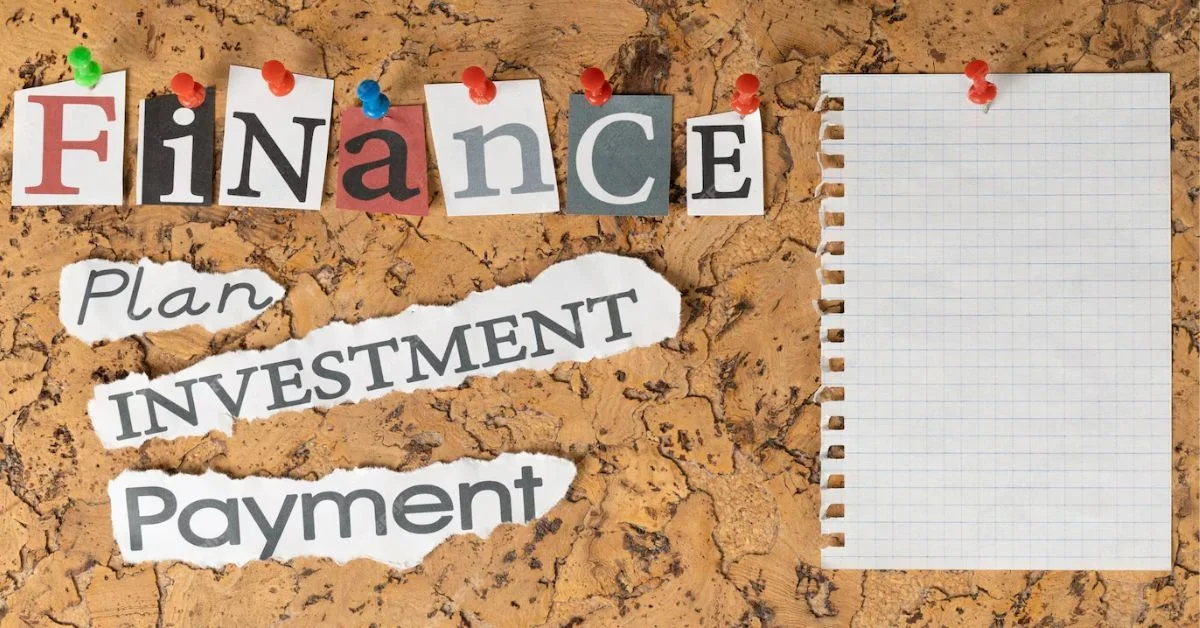BUSINESS
Understanding Debt Consolidation: What You Need to Know

Debt can quickly become overwhelming, especially when managing multiple loans or credit card balances with varying interest rates. Debt consolidation is a financial strategy designed to simplify repayments and, in some cases, reduce overall costs. Whether you’re new to the concept or considering it as a solution, this guide breaks down everything you need to know about debt consolidation.
What Is Debt Consolidation?
Debt consolidation involves combining multiple debts into a single loan, ideally with a lower interest rate and more manageable repayment terms. Instead of juggling various monthly payments to different creditors, you make one payment to the debt consolidation lender. This approach aims to streamline your finances, minimize stress, and, in some cases, save you money.
Consolidation can apply to various types of debt, such as credit cards, personal loans, medical bills, and student loans. If you want to manage debt and regain financial control, debt consolidation can be an effective tool, provided you approach it strategically. While it offers a path toward financial organization, it’s crucial to understand the nuances to ensure it aligns with your needs.
How Does Debt Consolidation Work?
Debt consolidation can simplify your financial obligations by combining multiple debts into a single loan. Here are the main methods of debt consolidation, explained in detail:
Personal Loans
A personal loan for debt consolidation lets you borrow a fixed amount to pay off existing debts. These loans often feature fixed interest rates and set repayment terms, helping you plan payments predictably. Depending on your credit score, you could secure a lower rate than your existing debts, saving money over time.
Balance Transfer Credit Cards
Balance transfer credit cards allow you to move multiple balances to one card, often with a 0% APR promotional period. This strategy helps you save on interest temporarily while paying off the debt. Be mindful of transfer fees and pay off the balance before the promotional period ends to avoid high rates.
Home Equity Loans or HELOCs
Homeowners can tap into their property’s equity through home equity loans or home equity lines of credit (HELOCs). These options typically offer lower interest rates because they’re secured by your home. While they provide substantial funds, defaulting on these loans could risk your property, making them a significant financial commitment.
Debt Management Plans (DMPs)
Credit counseling agencies can help you create a Debt Management Plan (DMP). The agency negotiates with creditors for reduced interest rates or waived fees and consolidates payments into one monthly installment. This approach doesn’t involve new loans, making it ideal for those with poor credit who need structured repayment assistance.
Benefits of Debt Consolidation
Debt consolidation is an attractive option for many, and here’s why:
- Simplified Payments: Managing one loan instead of multiple debts reduces confusion and helps avoid missed payments.
- Lower Interest Rates: If your credit score qualifies, consolidating debt into a lower-interest loan can save you money.
- Improved Cash Flow: Lower monthly payments can free up money for other expenses or savings.
- Debt-Free Timeline: Consolidations often includes fixed repayment terms, giving you a clear end date for becoming debt-free.
Potential Drawbacks to Consider
While debt consolidation can be beneficial, it’s not without risks. Here are a few considerations:
- Upfront Costs: Some loans or balance transfers come with fees, such as origination charges or balance transfer fees.
- Risk of Accumulating New Debt: Consolidating debt without changing spending habits can lead to accumulating new debt on top of the consolidated loan.
- Collateral Requirements: Loans like home equity loans require assets as collateral, putting your property at risk if you fail to repay.
- Credit Impact: Applying for new credit may result in a temporary dip in your credit score due to hard inquiries.
Is Debt Consolidation Right for You?
Debt consolidation is not a one-size-fits-all solution. Before deciding, evaluate these factors:
- Your Financial Discipline: Can you avoid creating new debt once your current balances are consolidated?
- Your Credit Score: A good credit score increases the likelihood of securing a lower interest rate.
- Debt Amount: Consolidations is most effective for individuals with substantial but manageable debt.
- Alternative Options: Would budgeting, negotiating directly with creditors, or seeking a debt settlement plan be better suited to your situation?
Steps to Consolidate Your Debt
If you’ve decided debt consolidation is the right move, follow these steps:
- Assess Your Debts: Gather information about your current balances, interest rates, and payment schedules.
- Check Your Credit Score: Your credit score will impact the interest rate and terms of the consolidation loan.
- Compare Lenders: Look for lenders with competitive rates and terms. Don’t forget to read reviews and verify their legitimacy.
- Calculate Total Costs: Factor in fees, interest rates, and repayment periods to ensure consolidation saves money in the long run.
- Apply for the Loan: Submit your application, and once approved, use the funds to pay off your existing debts.
Debt consolidation is a powerful financial strategy, but it requires thoughtful consideration and commitment. By consolidating your debts, you can simplify repayments, potentially lower your costs, and set yourself on a clear path to becoming debt-free. However, the success of debt consolidation hinges on your ability to manage your finances responsibly. Evaluate your situation, explore your options, and create a plan that aligns with your financial goals. With diligence and a strategic approach, debt consolidations can be a significant step toward financial stability and peace of mind.
BUSINESS
Tips for Choosing the Right Yard Waste Dumpster Rental

When it comes to managing yard waste, having the right dumpster rental can make a world of difference. Whether you’re tackling a landscaping project or simply cleaning up your outdoor space, having a convenient and efficient way to dispose of yard waste is essential.
With numerous options available, it’s important to know what to look for when choosing a yard waste dumpster rental.
Here are some valuable tips to help you make the right decision.
Assess Your Needs
Before you dive into searching for a yard waste dumpster rental, pause for a second to think about what you need. Think about how much yard waste you think you’ll end up with and the size of the stuff you’re tossing out. This will give you a good idea of what size dumpster you should go for. Rental services usually have different sizes to choose from, so knowing your needs will make picking one a breeze.
Research Local Providers
Before selecting a yard waste dumpster rental, it’s crucial to research local providers thoroughly. Explore this dumpster rental service in Delaware for insights on what to consider when choosing a rental company near you. Delve into reviews, compare pricing, and evaluate services provided. Ensuring you secure the most advantageous deal available while upholding quality is paramount.
Consider Sustainability
Going green is not only good for the environment, but it can also save you money on your rental. When searching for a yard waste dumpster rental, consider asking if they have environmental considerations in their waste management process or if they recycle the waste they collect. This will not only reduce your carbon footprint but may also result in lower fees.
Consider Pricing and Terms
When you’re checking out various yard waste dumpster rental choices, make sure to think about the pricing and terms. Look for clear pricing options with no sneaky fees, and ask about any extra charges for delivery, pickup, or going over weight limits.
Also, keep an eye on how long you can rent it and any rules about what kind of yard waste you can toss in. Knowing the ins and outs of the rental deal will help you dodge surprises and make sure your rental goes without a hitch.
Choose the Right Size
Choosing the perfect dumpster size is key for handling yard waste like a pro. If it’s too small, you’ll end up with overflow and extra charges; too big, you’re overspending. Think about how much waste you’ll have and pick a dumpster size that’s just right. Rental services usually have various options, so you can find the one that suits your needs best.
Prioritize Sustainability
When you’re renting a yard waste dumpster, think about going green. Check out dumpster rental services that give eco-friendly disposal choices like composting or recycling yard waste whenever they can. By picking a provider that cares about sustainability, you’re not just getting rid of waste, you’re helping out the planet too.
Making the Right Yard Waste Dumpster Rental Choice
Picking the perfect yard waste dumpster rental is a must for handling outdoor projects and keeping your outdoor area neat. By figuring out what you need, checking out local options, thinking about costs and terms, finding the right size, and focusing on sustainability, you can make sure renting goes smoothly.
Whether you’re sprucing up your yard or doing some landscaping, choosing the best dumpster rental service in your area will help you manage your yard waste well and in an eco-friendly way.
Share this article and other related content with your fellow readers as you continue exploring the articles on this site.
FINANCE
The Benefits of Utilizing Expert Tax Services for Managing Your 529 Plan

Navigating the complexities of a 529 Plan can feel overwhelming. Especially when considering tax implications. That’s where expert tax services come into play.
But what makes a tax accountant invaluable in this scenario? They bring clarity to intricate tax laws and regulations. By doing so, they ensure you’re compliant and maximizing your savings.
Their guidance becomes a beacon, illuminating the path to financial efficiency. In managing your 529 Plan, the expertise of a tax accountant is indispensable. They turn a daunting task into a manageable and strategic financial decision.
Understanding the Tax Benefits of a 529 Plan
529 plan is a type of savings plan that allows you to invest funds for future education expenses without incurring federal taxes on earnings or withdrawals. Many states offer additional tax incentives for contributing to a 529 Plan.
These can include deductions or credits on state income taxes. It makes it an even more attractive option for families saving for education expenses. Yet, it’s crucial to understand the specific tax benefits of your state’s plan.
It is where expert tax services come in. They have an in-depth understanding of state-specific tax laws and regulations. They take advantage of all available tax benefits.
The Expertise of Tax Accountants in Maximizing Savings
One of the benefits of utilizing expert tax services for your 529 education savings plans is their ability to maximize your savings. Tax accountants have a deep understanding of tax laws and regulations, including those specific to 529 Plans. They can help you navigate the complex tax implications of your contributions, earnings, and withdrawals from the plan.
This knowledge allows them to identify opportunities for tax savings. It ensures that you are compliant with all tax laws related to 529 education savings plans.
By leveraging their expertise, you can make informed decisions. It optimizes your financial benefits and secures your future educational savings.
Strategic Planning for Your 529 Plan
An expert tax service can help you develop a strategic plan for your 529 Plan. They can analyze your financial situation and determine the most helpful ways to contribute, invest, and withdraw funds from the plan.
Tax accountants can also guide how to coordinate 529 Plan contributions with other education-related tax benefits. These includes the following:
- American Opportunity Tax Credit
- Lifetime Learning Credit
Peace of Mind and Ongoing Support
Managing a 529 Plan can be a time-consuming and complex task. By utilizing expert tax services, you can have peace of mind knowing that your plan is being managed efficiently and effectively.
Tax accountants can also provide ongoing support and guidance as your financial situation changes or as new tax laws are implemented. It allows you to focus on other important aspects of your life while still ensuring that your 529 Plan is being managed in the most beneficial way possible.
Discovering the Benefits of Expert Tax Services
Expert tax services make 529 Plans manageable. They decode complex tax issues, revealing paths to savings. Their insight ensures compliance and optimizes your investment.
Affordable tax service transforms daunting tasks into strategic success. It’s about maximizing benefits while minimizing stress. Choose expert tax services for peace of mind.
They safeguard your educational savings, ensuring future success. Remember, investing in expert advice pays dividends in financial health.
Did you find this article helpful? If so, check out the rest of our site for more informative content.
REAL ESTATE
The Cost of Inflation in Construction

Since 2022 inflation has been driving up costs for just about everything, from bread to gasoline to construction costs and manufacturing. At just about every level, cost increases from 10 to 200 percent have been realized, sometimes adding three to four layers onto the original cost from the producer before reaching the final end user or customer. Construction in particular has been significantly hammered by inflation in multiple areas, depending on so many different supplies, skills, trades and products to complete a project. That cost increase ultimately has to get passed on to the commercial or industrial customer who may not be so willing to take on such increases if they can be delayed until the market is more reasonable.
How Can it Be Fixed?
The primary tool used by the government involves reducing the amount of currency in the market, thereby driving up the value of the dollar and reducing inflation’s effect. While easy to say, the implementation aspect is hard. It means increasing the cost of borrowing, making new money more expensive to obtain. Other methods involve reducing the number of income earners generating new value as well. That in turn results in job loss. The list goes on with a singular, common feature – pain. Most solutions for inflation tend to cause more loss, which is why inflation is often feared as a double-damage effect on an economy.
What Can Construction Do as a Solution?
One method of fighting inflation in the construction industry involves finding lower-cost substitutes for supplies and services used. However, this is a bit of a limited option; going too low ends up lowering the quality of the goods or services provided. Since the construction company is ultimately liable for the quality of the entire project delivery, there is a practical floor to how low quality can go before a discounted price isn’t worth taking. After all, the old saying of, “You get what you pay for,” really does apply in construction.
A second method involves financing the inflation as a delay tactic. The thinking here is to let someone else’s money take the hit of inflation through borrowing and, when times are better and currency valuation rises, the financing can be paid off with a lower cost. It is, in essence, gambling that the future will provide a better exchange for the borrower than the cost of the borrowing today. In many cases, this kind of financing out of inflation doesn’t work, and the cost of the construction ends up being far more.
A third method involves maximizing local resources, labor and equipment. While some construction companies insist on bringing all of their resources, cost-sensitive operations focus on finding the resources locally wherever the project happens to be. Again, there is a bit of gambling here; if the resources are not available locally, the company will still have to bring them in to complete the job. At short notice, that could drive the cost higher than if the elements were retained to begin with well in advance.
The Most Sensitive Construction Areas Hit
Among the areas hardest hit, raw material suppliers and equipment fleet managers have been seeing the most noticeable ongoing expense impacts. Fuel for vehicles erodes operating budgets mercilessly. Where construction involves a lot of transport, fuel costs are going to remain a challenge.
Most construction requires raw materials for assembly and end product development. As raw materials go up, the cost of the project increases notably. Materials can reach as much as 60 percent of a construction project’s overall expense, so controlling procurement is essential to protect profit margins. Yet again, the quality issue ties the project’s hands from going too cheap on supplies.
Finally, labor will continue to be a pressure during periods where hiring is difficult. Combined with inflation, deficits in skilled labor and trades can easily drive up salary and wage costs on a project, even with outsourcing and contracting versus direct hires.
Inflation Doesn’t Last Forever, Right?
Much of the expectation in the U.S. is that the current inflation levels will be temporary. However, Japan was a good example where long-lasting economic problems hampered multiple industries for a decade or longer. There’s no rule that says inflation can only last one or two years. Instead, monetary policy tends to be the primary response that makes a difference, reducing supply of currency and increasing economic buying power.

 ENTERTAINMENT4 days ago
ENTERTAINMENT4 days agoExploring the Kristen Archives: A Treasure Trove of Erotica and More

 ENTERTAINMENT1 day ago
ENTERTAINMENT1 day agoKiss KH: The Streaming Platform Redefining Digital Engagement and Cultural Currents

 EDUCATION1 day ago
EDUCATION1 day agoLingrohub Platform: A Complete Student Access Guide

 LIFESTYLE4 months ago
LIFESTYLE4 months agoThe Disciplinary Wives Club: Spanking for Love, Not Punishment

 TECHNOLOGY24 hours ago
TECHNOLOGY24 hours agoCasibom: The Digital Alchemy Reshaping Systems, Society, and Self

 TECHNOLOGY23 hours ago
TECHNOLOGY23 hours agoSecuring Your Online Presence: The Ultimate Guide to Buying an SSL Certificate

 TECHNOLOGY4 months ago
TECHNOLOGY4 months agoBlog Arcy Art: Where Architecture Meets Art

 BUSINESS23 hours ago
BUSINESS23 hours agoDiversifying Your Portfolio: The Key to Successful Investing in Portland, Oregon











